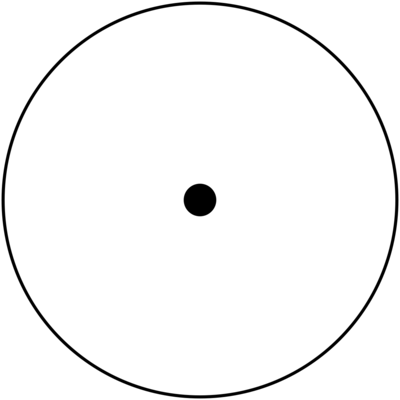monadologia
v1.1.5
Published
A monad helper library
Maintainers
Readme
monadologia
A Functional Programming helper library

install
npm i monadologia
or
<script src="dist/monadologia"/>execute example
clone repository
cd typescript_example
npm i
npm run start
done!use
import {pipe, compose, either, maybe.. etx} from 'monadologia'
import * as monadologia from 'monadologia'
or
window.monadologia.pipe
window.monadologia.either..api
<compose>
compose(Array<Function>)
or
monadologia.compose(Array<Function>)
compose(value)
or
monadologia.compose(value)
example
function a(v: any){
console.log("call a func")
return v;
}
function b(v: any){
console.log("call b func")
return v * v
}
function c(v: any){
console.log("call c func")
return v * v
}
const composed = monadologia.compose(a, b, c);
console.log("COMPOSED : " + composed(2));<pipe>
pipe(Array<Function>)
or
monadologia.pipe(Array<Function>)
pipe(value)
or
monadologia.pipe(value)
example
function a(v: any){
console.log("call a func")
return v;
}
function b(v: any){
console.log("call b func")
return v * v
}
function c(v: any){
console.log("call c func")
return v * v
}
const p = monadologia.pipe(a, b, c)(2);
console.log("PIPE : " + p);<curry>
curry(Function)
or
monadologia.curry(Function)
curry(value1)(value2)..
or
monadologia.curry(value1)(value2)..
example
const curried = monadologia.curry(function(a: any, b: any, c: any){
console.log("CURRIED : " + a, b, c)
})
curried(1)(2)(3);
curried(1, 2)(3);
curried(1)(2, 3);<go>
go(initValue, Array<Function>)
or
monadologia.go(initValue, Array<Function>)
go()
or
monadologia.go()
example
function a(v: any){
console.log("call a func")
return v;
}
function b(v: any){
console.log("call b func")
return v * v
}
function c(v: any){
console.log("call c func")
return v * v
}
const p = monadologia.go(2, a, b, c);
console.log("GO : " + p);
<maybe>
interface Maybe<T> {
isNothing(): boolean;
map<S>(f: (v: T)=> S): Maybe<S>;
flatten(): T | Maybe<T>;
chain<S>(f: (v: T) => Maybe<S> | Either<S>): Maybe<S>;
value: T;
maybeToEither(): Either<T>
}
example
monadologia.maybe<number>(4)
.map((v: number)=> v * 4)
.chain((v: number)=> monadologia.maybe<string>(""))
.flatten(); // Some, ""
monadologia.maybe<number>(4)
.map((v: number)=> v * 4)
.chain((v: number)=> monadologia.maybe<string>(""))
.map((v: string) => null)
.flatten(); // Nothing, null <either>
interface Either<T> {
constructor<T>(v: T): Either<T>
map<S>(f: (v: T) => S): Either<S>;
flatten(): T| Either<T>;
chain<S>(f: (v: T) => Either<S>| Maybe<S>): Either<S>;
value: T;
catch<S>(f: (v: any) => S): Either<S>
catch(f: (v: any) => any): Either<T>
eitherToMaybe<T>(): Maybe<T>
}
interface EitherFactory {
right<T>(v: T): Either<T>;
left<T>(v: T): Either<T>;
tryCatch<T>(f: (v: any) => T): (v: any)=> Either<T>;
}
example
function callback(v: string): string {
if(v === "error")
throw new Error("error")
return v;
}
const testFunc = monadologia.either.tryCatch<string>(callback)
const res = testFunc("test")
res.catch((d: string) => d)
.map((v: string) => 10)
.map((v: number) => "")
.chain((v: any) => testFunc("A").catch((m: string)=> m))
.flatten() // A
res.catch((d: string) => d)
.map((v: string) => 10)
.map((v: number) => "")
.chain((v: any) => testFunc("error").catch((m: string)=> m))
.flatten() // error<state>
interface State<T, S>{
runState: (state: S)=> {value: T, state: S}
map<Q>(f: (value: T)=> Q): State<Q, S>;
flatten<P, Q>(): State<P, Q>;
chain<P, Q>(f: (value: T)=> State<P, Q>): State<P, Q>
evalValue(state: any): any
evalState(state: any): any
}
interface StateFactory{
<T, S>(v: T) : State<T, S>;
<T>(v: T) : State<T, any>
get<T>(): State<T, T> //muse input type(If the type is not entered, the type cannot be inferred from ide.)
put<P>(newState: P): State<undefined, P> //muse input type(If the type is not entered, the type cannot be inferred from ide.)
modify<P>(f: (state: any)=>P): State<undefined, P> //muse input type(If the type is not entered, the type cannot be inferred from ide.)
gets<P>(f: (state: any) => P): State<P, any> //muse input type(If the type is not entered, the type cannot be inferred from ide.)
}
example
monadologia.state<number>(3)
.chain((value: number)=> monadologia.state.put(999)) // value undefined state 999
.chain((value: undefined)=> monadologia.state.get<number>()) // value 999 state 999
.chain((value: number)=> monadologia.state.modify((state: number)=>{
return [];
})) // value undefined state []
.chain((value: undefined)=>{
return monadologia.state.gets((state: [])=> 200)
}) // value 200 state []
.chain((v: number)=> monadologia.state("good")) // value 뽕 state[]
.evalValue(10) // init state 10, value return
monadologia.state<number>(3)
.chain((value: number)=> monadologia.state.put(999)) // value undefined state 999
.chain((value: undefined)=> monadologia.state.get<number>()) // value 999 state 999
.chain((value: number)=> monadologia.state.modify((state: number)=>{
return [];
})) // value undefined state []
.chain((value: undefined)=>{
return monadologia.state.gets((state: [])=> 200)
}) // value 200 state []
.chain((v: number)=> monadologia.state("H")) // value H state[]
.evalState(10) // init state 10, state return
<writer>
interface Writer<T>{
value: T,
log: any[],
map<Q>(f: (value: T)=> Q): Writer<Q>
flatten<P>(): Writer<P> | P
chain<P>(f: (value: T)=> Writer<P>): Writer<P>
logging<Q>(f: (value: T) => Q): Writer<T>
}
example
monadologia.writer(4)
.map((v: number)=> "hello!")
.logging((v: string)=> "Inputed: " + v)
.chain((v: string)=> monadologia.writer(v, ["inputed: " + v]))
.map((v: string)=> "Yaho@")
.logging((v: string)=> "YAHO~~!")<reader>
interface Reader<T, E>{
runReader: (env?: E)=> T;
map<Q>(f: (value: T)=> Q): Reader<Q, E>;
chain<P>(f: (value: T)=> Reader<P, E>): Reader<P, E>;
ask(): Reader<E, E>;
}
const read = monadologia.reader<number, string>(100)
.map((v: number)=>{
console.log(v); // 100
return v + 200;
})
.map((v: number)=>{
console.log(v) // 300
return v + 40;
})
read.chain((value: number)=>{
const newReader = monadologia.reader<number, string>(5)
.ask()
.map((v: string)=>{
console.log(v) // test
return v;
}).
map((v: string)=>{
return 1
})
return newReader;
}).runReader("test")<task>
interface Task <T>{
fork: (err: Function, ok: Function)=> void;
map<S>(f: (v: T)=> S): Task<S>;
chain<S>(f: (v: T)=> Task<S>): Task<S>;
}
monadologia.task<number>((err: Function, ok: Function)=>{
ok(1)
}).chain((v: number)=> monadologia.task<string>((err: Function, ok: Function)=>{
ok("")
})).map((v: string)=> 100)
t.fork(console.error, console.log)check detail usecase on example project!
